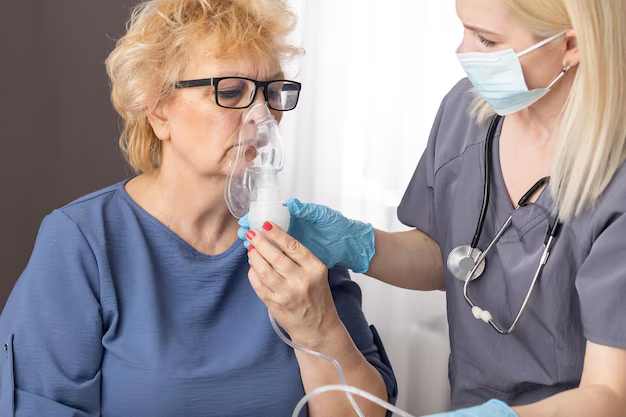Getting Over Pneumonia: What You Need to Know for a Full Recovery
When you're grappling with pneumonia, one of the most pressing questions is likely, "How long will it take to get better?" Pneumonia can be a debilitating respiratory condition, and recovery times can vary significantly depending on several factors. In this comprehensive guide, we'll explore everything you need to know about recovering from pneumonia, including helpful tips and insights to make your journey back to health as smooth as possible.
Understanding Pneumonia and Its Impact
What Is Pneumonia?
Pneumonia is an infection that inflames the air sacs in one or both lungs. These air sacs may fill with fluid or pus, causing symptoms like coughing, fever, chills, and difficulty breathing. It can range from mild to severe and is often caused by a variety of organisms, including bacteria, viruses, and fungi.
Factors Influencing Recovery Time
Several factors determine how quickly someone can recover from pneumonia:
- Age: Older adults may recover more slowly due to weaker immune systems.
- Overall Health: Those with pre-existing health conditions might face longer recovery times.
- Type of Pneumonia: Bacterial infections often resolve faster with antibiotics compared to viral pneumonia, which might not have specific treatments.
- Severity of Infection: Severe pneumonia cases may result in extended hospital stays and recovery periods.
Typical Recovery Timeline
Mild Cases
For mild pneumonia, individuals often start feeling better within a week after starting treatment, although fatigue and a cough might persist for several weeks.
Moderate to Severe Cases
More serious cases, especially those requiring hospitalization, generally involve a longer recovery period that can extend from weeks to a few months. Full recovery might involve gradual improvement in symptoms like energy levels and breathing.
Children vs. Adults
Children typically bounce back faster, often within one to two weeks, provided they have no underlying health issues. On the other hand, older adults may experience prolonged recovery times.
Enhancing Your Recovery: Practical Tips
Rest and Hydration
Rest and proper hydration are critical. Your body needs energy to battle the infection, and staying hydrated helps your immune system function optimally.
Nutrient-Rich Diet
A nutritious diet supports immune health. Focus on incorporating plenty of fruits, vegetables, lean proteins, and whole grains to aid in recovery.
Avoid Tobacco and Alcohol
Both tobacco and alcohol can impede your recovery, so it's best to avoid them until you're fully recovered and possibly even longer for overall health.
Breathing Exercises
Performing easy breathing exercises can help clear the lungs and strengthen respiratory health. Consult your healthcare provider for recommendations on which exercises are best suited for your condition.
Follow-Up Medical Care
Ensure you attend all follow-up appointments with your healthcare provider. This is crucial to monitor recovery progress and tackle any complications promptly.
Recognizing Warning Signs: When to Seek Further Help
Persistent Symptoms
If symptoms like high fever, persistent cough, or shortness of breath continue without improvement, it's important to seek further medical evaluation.
Recurrent Pneumonia
Experiencing pneumonia more than once in a brief period may indicate an underlying condition that needs addressing.
Complications
Watch out for signs of complications such as pleurisy or lung abscesses. These require immediate medical attention.
Pneumonia Prevention: Staying Healthy
Vaccinations
Stay up-to-date with vaccinations, including flu shots and pneumococcal vaccines, particularly important for older adults and young children.
Good Hygiene Practices
Regular hand-washing and avoiding close contact with sick individuals are simple yet effective ways to prevent pneumonia.
Healthy Lifestyle
Maintaining a healthy lifestyle with a balanced diet and regular exercise builds a robust immune system that can fend off infections more effectively.
Insights on Special Conditions
Pneumonia in Seniors
Seniors often face a more challenging recovery, and caregivers should be vigilant about hydration, nutritional intake, and environmental factors like air quality.
Chronic Illness and Pneumonia
Individuals with chronic illnesses (e.g., COPD or diabetes) should work closely with their healthcare providers to manage their conditions comprehensively, reducing pneumonia risks and improving recovery outcomes.
Support and Resources
Joining a Support Group
Consider joining a support group for individuals recovering from pneumonia. Sharing experiences and tips can be encouraging and enlightening.
Community Resources
Explore local healthcare resources that can provide additional support, such as home healthcare services or nutritional counseling.
Navigating through pneumonia recovery can be a daunting experience, but understanding the journey and knowing what to expect can make a significant difference. Whether it's following up on medical appointments, ensuring proper nutrition, or engaging in gentle exercises, every small step is crucial on the road to wellness.
📝 Summary and Tips for Pneumonia Recovery
- 👩⚕️ Rest Is Key: Prioritize rest to boost your immune response.
- 🥤 Stay Hydrated: Keep fluids up for effective recovery.
- 🍎 Eat Nutrient-Dense Foods: Essential for immune health.
- 🚭 Avoid Smoking & Drinking: Essential to prevent delays in recovery.
- 🏃♂️ Breathing Exercises: Consult your doctor for effective techniques.
- ⏰ Regular Check-Ups: Monitor progress and prevent complications.
- 💉 Vaccinate: Stay updated on vaccines to minimize future risk.
- 👥 Support System: Engage with support groups for motivation and shared experiences.
Remember, patience and consistency in care can make all the difference in achieving a full recovery from pneumonia.

Related Articles
- a Typical Pneumonia
- Can a Cold Turn Into Pneumonia
- Can a Sinus Infection Turn Into Pneumonia
- Can Amoxicillin Cure Pneumonia
- Can Amoxicillin Treat Pneumonia
- Can Baby Oil Cause Pneumonia
- Can Bronchitis Turn Into Pneumonia
- Can Covid Turn Into Pneumonia
- Can Doxycycline Treat Pneumonia
- Can Flu Turn Into Pneumonia
